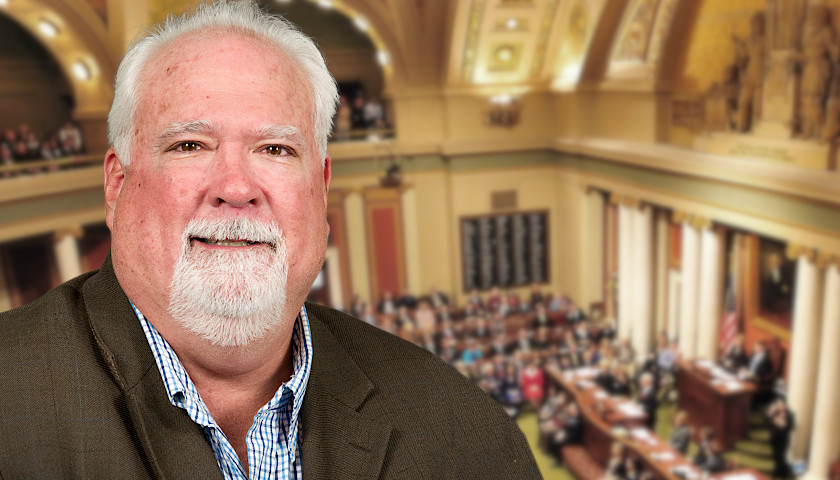by Bethany Blankley
The nation’s only divided legislature has reached agreements on all of its remaining budget disputes, Gov. Tim Waltz and leaders of the Senate Republican and House Democratic majorities said Thursday.
They reached a compromise on the biggest part of the budget during Thursday’s special session – the health and human services funding bill, which has not yet been posted.
The special session could go into Friday, some aides say.
Legislators first agreed to higher education funding and opioid bills.
The final higher education spending plan totals $3.41 billion for the 2020-21 biennium, $150 million more than projected in February. It increased funding for the state’s Office of Higher Education, which oversees the state’s financial aid program, by $25 million.
It also increased funding for the Minnesota State system by $81.5 million, and increased funding for the University of Minnesota by $43.5 million, excluding the House’s call for a tuition freeze. It left the Mayo Foundation’s medical education program funding at $2.7 million.
The opioid bill requires pharmaceutical companies and drug distributors to pay $20.9 million in annual fees, limited to a minimum of five years, and only after the state recovers at least $250 million from settlements with pharmaceutical companies. Revenue from settlements is earmarked for opioid response efforts.
About 90 percent of the Opiate Epidemic Response Account would go toward the state Health and Human Services’ (HHS) Fiscal Year 2020 budget. Of that, $7.8 million will go to grants recommended by the newly created opioid council, and $7.8 million to counties and tribes to reimburse them for child protection costs.
Funding includes $2 million in annual “traditional healing grants,” $1.3 million for non-narcotic pain management, and $627,000 annually toward the Bureau of Criminal Apprehension for drug scientists, labs and enforcement.
“The opioid crisis is something everyone in society needs to work together on to address and help solve, and AFP-MN is committed to working with anyone to find solutions,” its director, Jason Flohrs, told The Center Square. “But punishing Minnesota patients by making them pay more for the care and medication they need is not the answer. We’re disappointed that lawmakers chose to saddle patients with higher fees rather than use money the state already had available.”
Legislators hashed out transportation funding, which excludes the governor’s 70 percent gas tax increase after voters expressed overwhelming opposition.
About $97 million is expected to fund new transportation projects, including $55 million to replace the controversial Minnesota Licensing and Registration System and $13 million to help registrars recoup losses from its failed roll-out last year.
“There’ll be a lot of information flowing out again in the next few days,” said Rep. Paul Torkelson, R-Hanska.
The judiciary and public safety bill, Rep. Jack Considine, DFL-Mankato said, is “one of the most significant victories of this session.” Total funding allocated is $56,367,000 in 2020 and $57,495,000 in 2021. Funding included money to hire new corrections officers and raise all judges’ salaries by 2.5 percent each year.
The bill excludes two DFL-backed gun control measures. One would have required background checks for gun transfers between private individuals. A “red flag” law would have permitted law enforcement and other officials to identify individuals posing significant risks to themselves or others and prohibiting them from purchasing a firearm.
A new law goes into effect Aug. 1 that prohibits drivers from talking or calling on mobile phones unless they use the hands-free mode.
The Jobs, Energy, and Commerce agreement excludes Gov. Waltz’ proposed 100 percent carbon-free energy mandate, a decision Isaac Orr, policy fellow at the Center of the American Experiment said, helped “Minnesotans dodge a bullet this legislative session.”
“If the ‘Green New Deal’ style carbon-free energy mandate had passed, the costs to Minnesota families, businesses, and the state government would have crippled our state’s economy,” Orr added. “Despite the costs, there would be no measurable impact on global warming for at least the next 80 years.”
The center published an economic analysis of the impact of the proposed gas tax and renewable energy mandate.
The Agriculture, Housing and Rural Development Finance bill appropriates $54.2 million in each year over the next biennium. It excludes legalizing marijuana for recreational use.
The Jobs and Economic Development Finance bill appropriates about $126.6 million in 2020 and $119.2 million in 2021.
– – –
Bethany Blankley is a contributor for The Center Square.
Background Photo “Minnesota Legislature” by Mark Dayton. CC BY 2.0.




